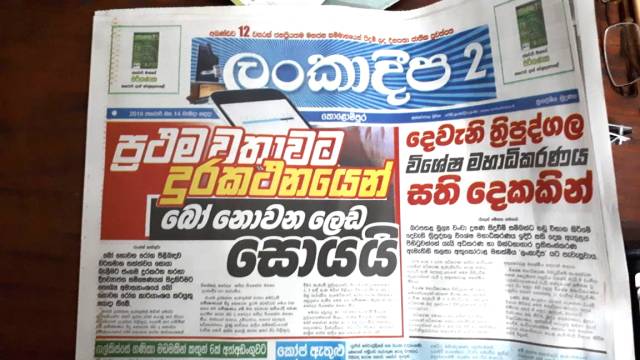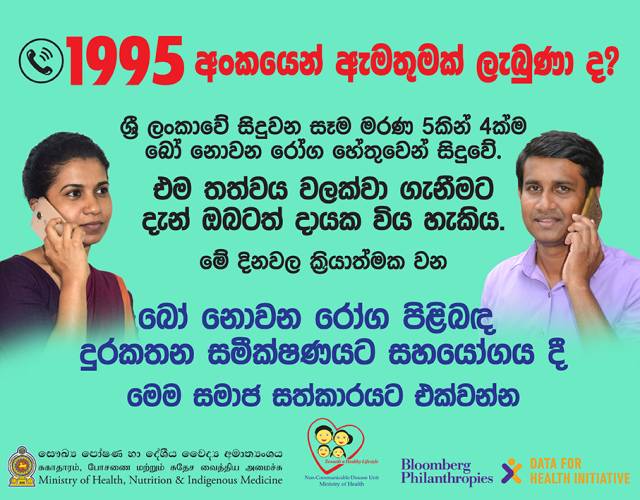You are here
Health Surveys Glean Vital Data in Sri Lanka
Sri Lanka is a diverse country known for its pristine beaches and natural beauty. Since 2019, however, the country has suffered from excessive inflation and skyrocketing costs of products and services, sparking a widespread economic crisis.
As part of its response to the crisis, the Ministry of Health carried out two mobile phone surveys (MPS) on the impact of the economic crisis on noncommunicable diseases (NCDs) and access to care and medicine. Made possible through the Data for Health Initiative, a global endeavor aimed at better collecting and utilizing public health data, the surveys sought to outline the health seeking behaviors of individuals with NCDs, evaluate the accessibility of medication for managing these diseases at government clinics and determine the proportion of individuals who discontinued or partially continued treatment. The surveys will also help identify the factors influencing treatment adherence and help health officials estimate the percentage of individuals who sought and utilized mental health services due to the crisis.
Launched in 2015, Data for Health partners with governments in low- and middle-income countries to strengthen the availability of public health data and improve how they use information to make policy decisions that can improve and save lives. Supported by Bloomberg Philanthropies, this initiative provides nations with the tools and information needed to improve their health data systems.
Gathering responses from 2,696 adults aged 18 and above across the five major mobile network operators in Sri Lanka, the survey unveiled concerning trends in health-seeking behavior, with 21% of participants disclosing diabetes, 24% indicating hypertension and 9% facing mental health issues. The survey also shed light on the impact of the economic crisis on access to medical services, with 52% of respondents unable to consult a physician and 58% experiencing difficulties in obtaining necessary medications. Further, 44% of diabetes patients, 37% of hypertension patients and 30% of those with mental health disorders reported discontinuing their medications, due most often to high cost (58%) or limited availability (20%).
As a quick and efficient way to gather population-level data, the surveys follow on the heels of two other MPS collecting data on NCDs and COVID-19 which sparked a request by the country’s Ministry of Health for a follow up survey to compare to the 2023 data. The analysis will inform government decision-making about access to care and medication for NCDs during economic periods of recession and indicate the level of economic revival the country is seeing in 2024 over 2023 levels regarding access to care and medicines.
In Sri Lanka and countries round the world, the Data for Health program continues to play an important role in bridging information gaps, providing nations with robust data-gathering tools, fostering evidence-based policy making and bolstering healthcare systems against current and future public health obstacles.


